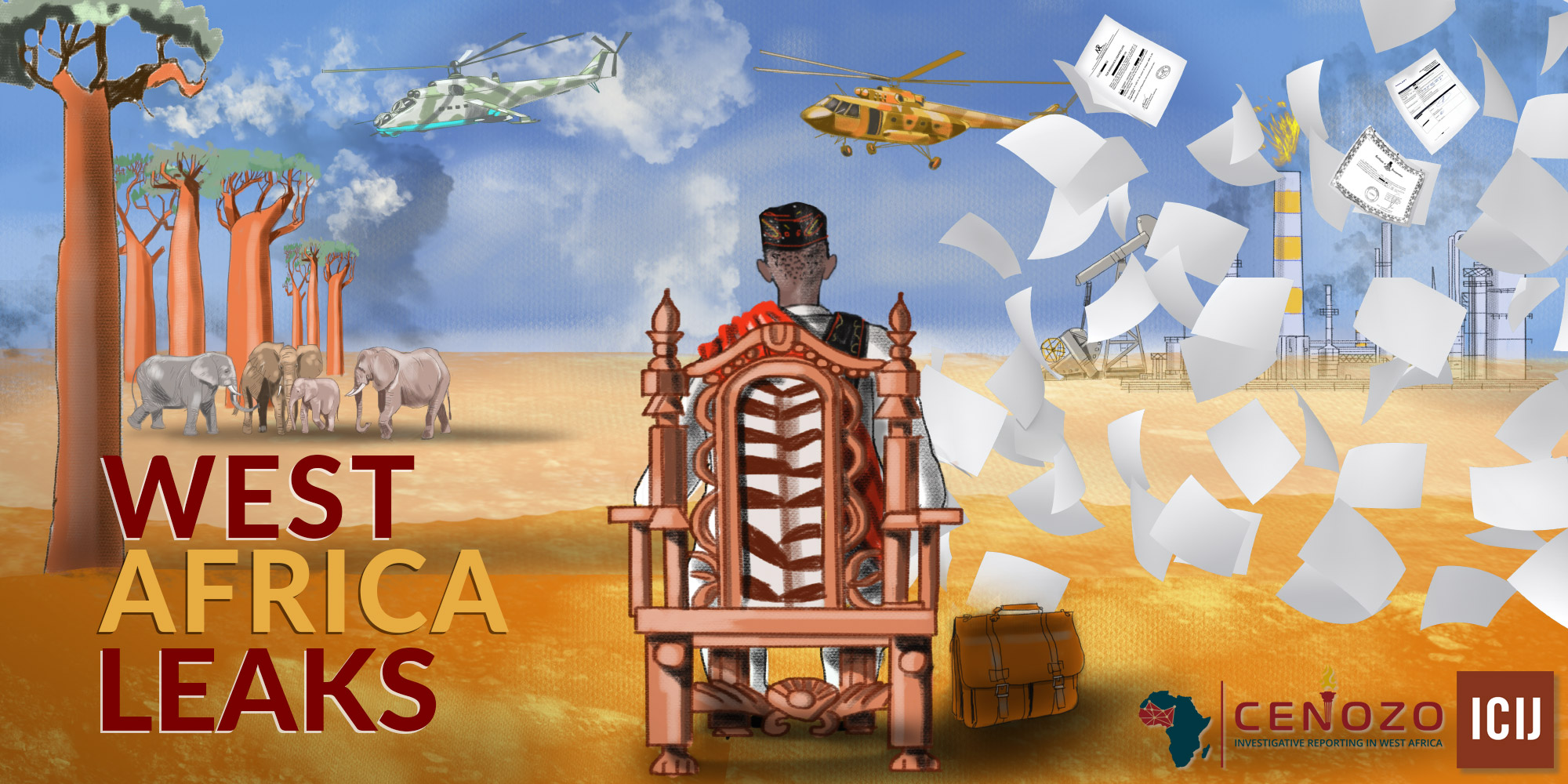Probed, sacked and ignored: how countries reacted to West Africa Leaks
…The region’s biggest collaboration spurred some nations to act, while others remained silent.
Twelve months after the publication of West Africa’s largest journalism collaboration, authorities in the region continue to probe some leads – and ignore others.
West Africa Leaks uncovered offshore companies and bank accounts of potentates from the region, which loses more revenue through tax avoidance, evasion and financial crime than any other in Africa.
Working with the International Consortium of Investigative Journalists and the Norbert Zongo Cell for Investigative Journalism (Cenozo), reporters from 11 countries spent months poring over leaked financial records, contracts and emails.
Their discoveries included the Dubai company of a candidate for the presidency in Mali (he lost), the tax avoidance machinations of a Canadian multinational in Senegal and the bank account of a member of Togo’s autocratic ruling elite.
The investigation was the first of its kind in West Africa, where journalists are underpaid, and can face the threat of imprisonment and even death for their work.
The revelations did not spur every government into action. No probes have been opened in Mali, Senegal, Benin, Togo or Niger.
Yet there are reasons for optimism, according to both anti-corruption experts and journalists.
Investigative stories like those from West Africa Leaks “are like drops of water on a stone,” said Samuel De Jaegere, adviser with the United Nations Office on Drugs and Crime. “You don’t see impact immediately, but over time you will. An informed public opinion will demand change, eventually.”
West Africa Leaks showed that “talents in investigative journalism abound in Ghana and in the region,” said Accra-based West Africa Leaks member Emmanuel Dogbevi.
Dogbevi said: when “faced with limited resources [journalists] are able to step up to the plate and do a world class project of the highest standard, and more importantly, that they are willing to take the risk to expose wrongdoing.
“Like a seed, it is very likely to grow as a major reference point for courageous, public interest journalism, particularly at a time when there is growing interest in illicit financial flows in West Africa.”
Mining approvals in Liberia
West Africa Leaks exposed new details about the Seychelles’ company directed by Clavenda Bright-Parker, the childhood friend of Nobel Prize-winning former president Ellen Johnson-Sirleaf. Liberian journalist Alloycious David revealed that an iron mining company used Bright-Parker and the Seychelles company to push Johnson-Sirleaf’s government to approve mining permits.
Liberia’s revenue agency (LRA) had opened an inquiry into Bright-Parker following the 2016 publication of the Panama Papers investigation, according to documents seen by ICIJ.
The agency also launched a “Panama Papers Leaks Inquiry”, comparing companies from the leak with the country’s internal database, according to a briefing note sent to the tax office.
“The LRA has information of tax evasion allegedly committed by some individuals and businesses in Liberia,” according to a May 2017 letter sent by Liberia’s tax office to its financial intelligence unit
The LRA requested bank records between 2011 and 2016 for one Liberian company and three individuals, including Clavenda Bright-Parker.
Bright-Parker denied wrongdoing. The tax probe continues.
Money laundering in Cape Verde
In Cape Verde, prime minister Ulisses Correia e Silva announced he would open a money laundering probe into the Swiss bank account of an Italian food importer.
The West Africa Leaks revelations dominated Cape Verde’s online, newspaper and television news and forced the closure of the import business, according to local media reports.
Mayor fired in Cote d’Ivoire
In Côte d’Ivoire, the mayor of Plateau, a district in the country’s capital Abidjan, was fired over allegations of embezzlement months after West Africa Leaks revealed his links to a company in the Bahamas.
The mayor, Noël Akossi Bendjo, denied wrongdoing.
In January, Côte d’Ivoire’s minister of the interior was forced to confront rumors that Bendjo’s sacking was improper. The dismissal “constitutes a disciplinary sanction, following the forgery of public writings and the embezzlement of public funds, involving several billion CFA francs [several million U.S. dollars], to the detriment of the local authority and the population,” the minister said.
Accountability not a 100-meter race
Muazu Umaru, planning and research director at the Inter-Governmental Action Group against Money Laundering in West Africa (GIABA), said West Africa Leaks created chatter on talk shows, but had limited policy impact.
“Those who are involved are also those in power,” Umaru said by way of general explanation for the muted response to financial exposés. “Most of the guys, if you catch them, they will escape.”
Technical and financial constraints also limit countries’ ability to pursue wrongdoers.
“You’re dealing with millions and millions and millions of dollars,” Umara said. “You need someone who understands major investigations and there are very few in our investigative agencies.
“This is a job for the long-haul, not a 100-meter race.”
By Will Fitzgibbon

